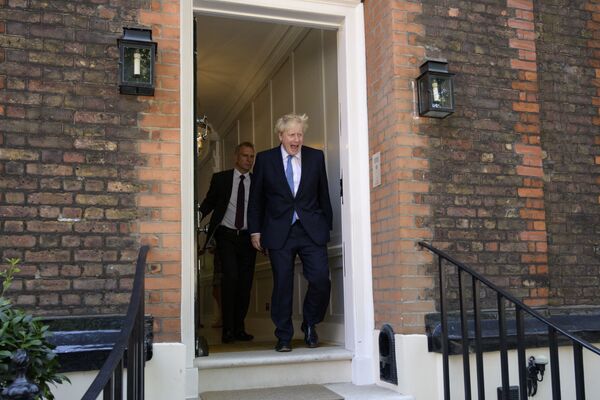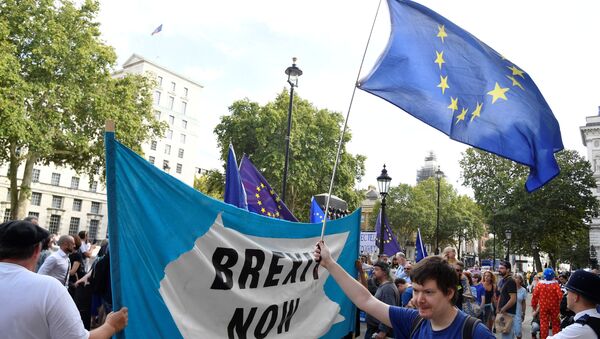On Wednesday, Johnson's surprise request on proroguing parliament was approved by the Queen and has since received a lot of backlash from the anti-Brexit campaigners.
The Prime Minister has said he will suspend parliament from around 12 September until the Queen's Speech - potentially stopping MPs ability to derail his 'no-deal' Brexit plans.
Calling the move "legal and justified" as it would allow the Tory government to set out its policies for the coming months, Prof. Bieler pointed out that this step is first of all "intended to sidestep potential parliamentary resistance to no-deal Brexit" as the Brexit deadline of 31 October is fast approaching.
"As such, sidelining parliament in such an important moment is a rather authoritarian, undemocratic move," the scholar added.
The UK Prime Minister has defended his decision, calling it part of his negotiating strategy and arguing that MPs will have enough time to negotiate Brexit.
"What I want to do now, what most people in this country want this government to do, is get on and try and get an agreement," he said. "But if we can't get an agreement, get ready to come out anyway," Johnson told Sky News.
He also warned that MP’s not to try and stop Brexit as it will only harm the UK's chances of striking a deal with the EU:
"I’m afraid that the more our friends and partners think at the back of their minds that Brexit could be stopped, that the UK could be kept in, by parliament, the less likely they are to give us the deal that we need," he said
Nevertheless, "it’s a risky strategy" for Johnson, Bieler says.
"Not only is he alienating opposition parties and large parts of the wider public, but he has also increased discontent within his own party. Conservative MPs such as the former chancellor Philip Hammond are now much more likely to make common cause with opposition MPs in an attempt to prevent a no-deal Brexit."

Among some of the critics is Labour’s shadow international trade secretary, Barry Gardiner. The secretary condemned the suspension of parliament for five weeks as "an unprecedented outrage designed to prevent Parliament passing legislation that would stop the government taking the country out of the EU without a deal."
But the opposition is only united in one thing - that’s rejecting a no-deal Brexit, but can’t agree on the alternative, according to Prof. Bieler.
"Some are opposed to Brexit outright, such as the Liberal Party and many of the SNP MPs, others do want to deliver on Brexit, but with a deal including for example a Customs Union with the EU. This disagreement has been the main problem for some time. When former Prime Minister Theresa May allowed Parliament to vote on alternative proposals in the Spring, none of these proposals secured a majority in parliament," the expert stressed.
The decision to suspend parliament has prompted Labour Party leader Jeremy Corbyn and the Leader of the Liberal Democrats Jo Swinson to write to the Queen to request an urgent meeting, but Prof. Bieler is sceptical it will benefit the opposition.
"We need to remember that the Queen's role in this is a mere formality. She was never in a position to reject the request of suspending parliament, nor would she now be in a position to change her decision as a result of a meeting with opposition party leaders," Bieler explained.
On Saturday protests over Johnson's proroguing of parliament are expected to take place across the UK.
*Views and opinions expressed in this article are those of the speaker and do not necessarily reflect those of Sputnik.




